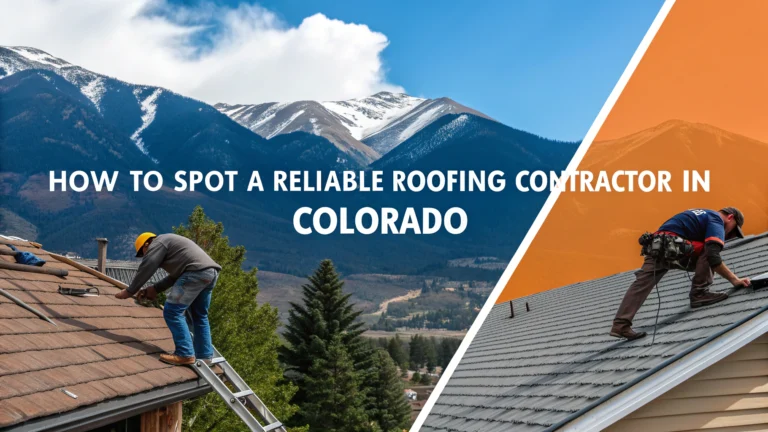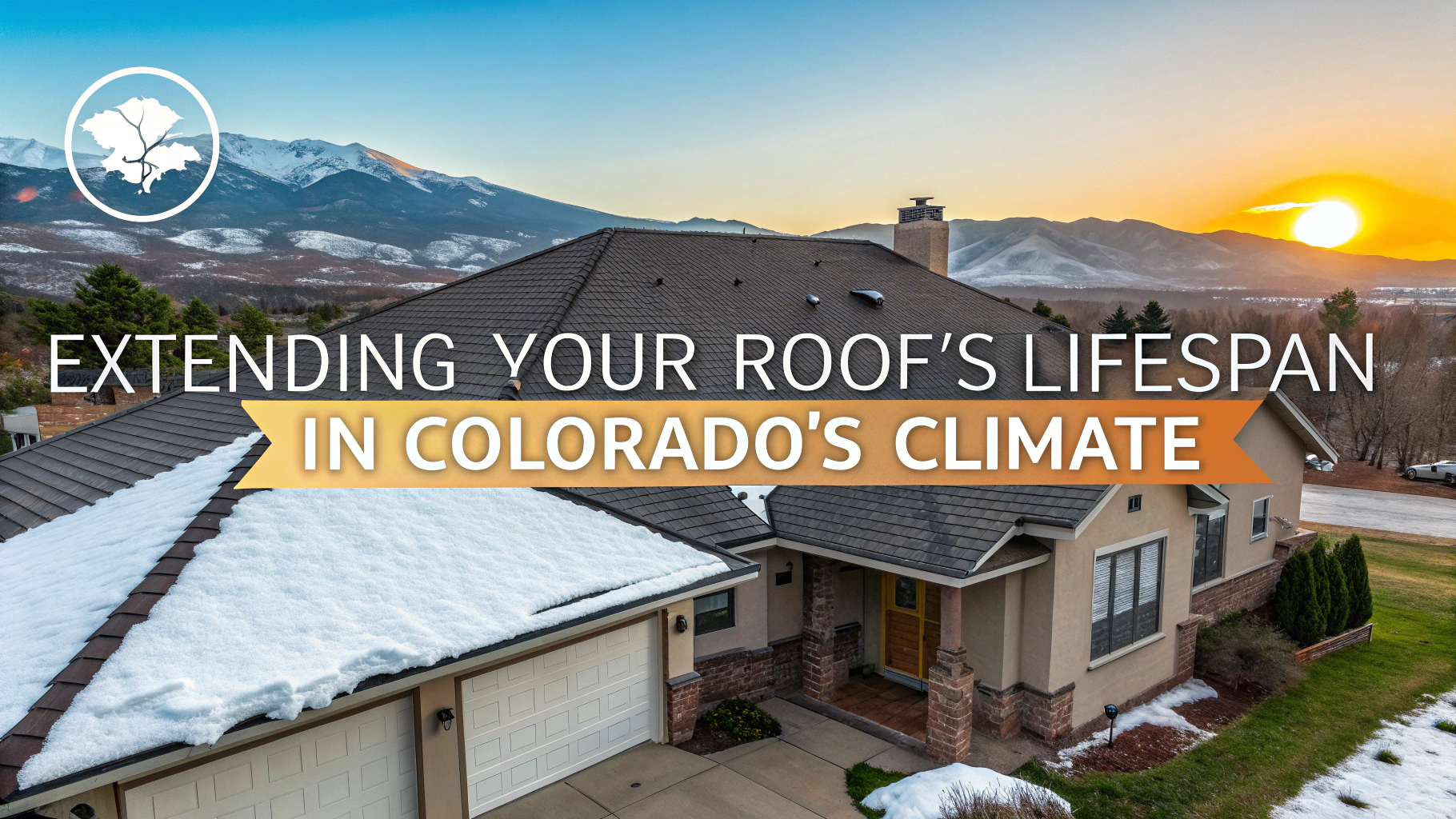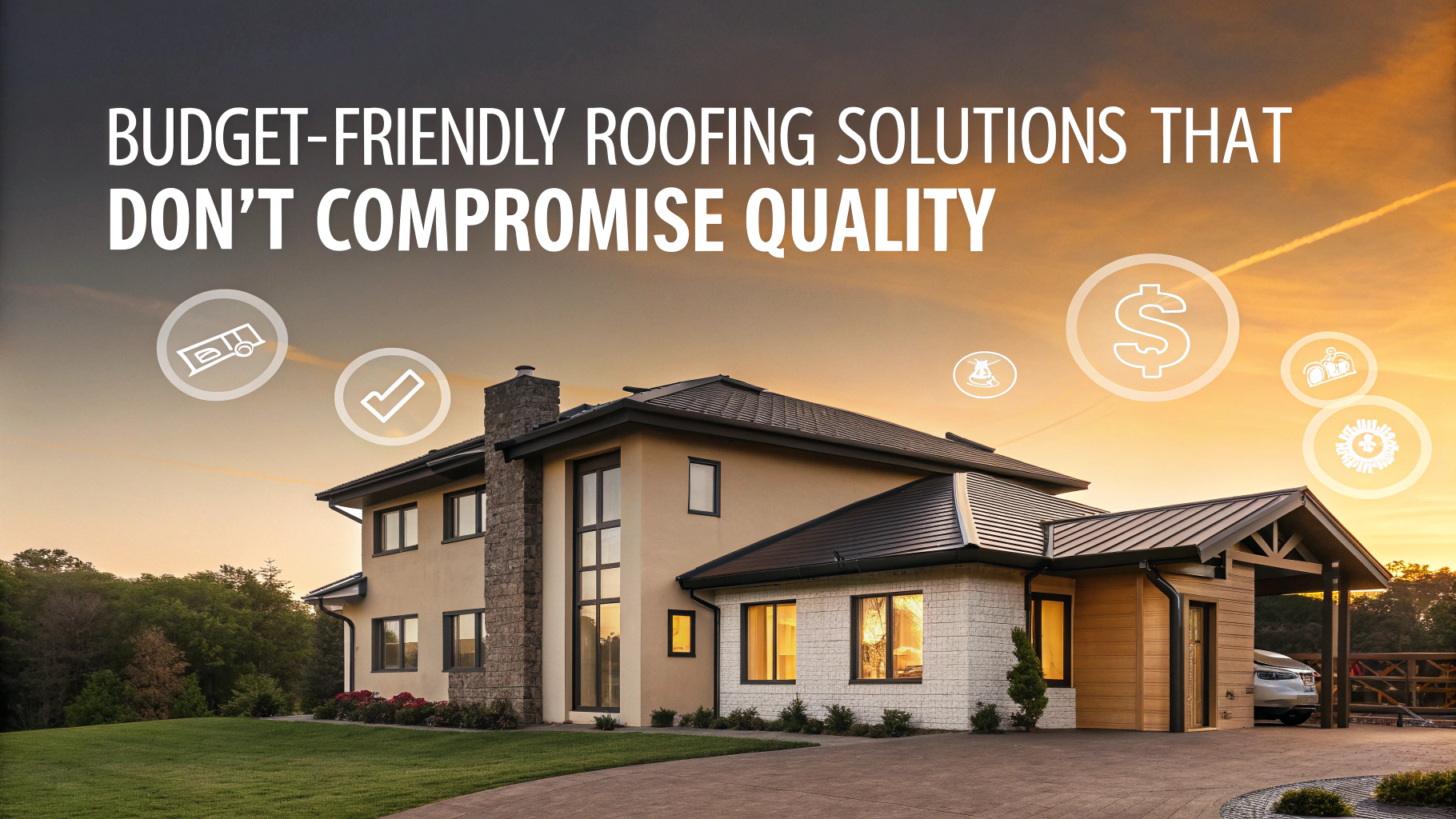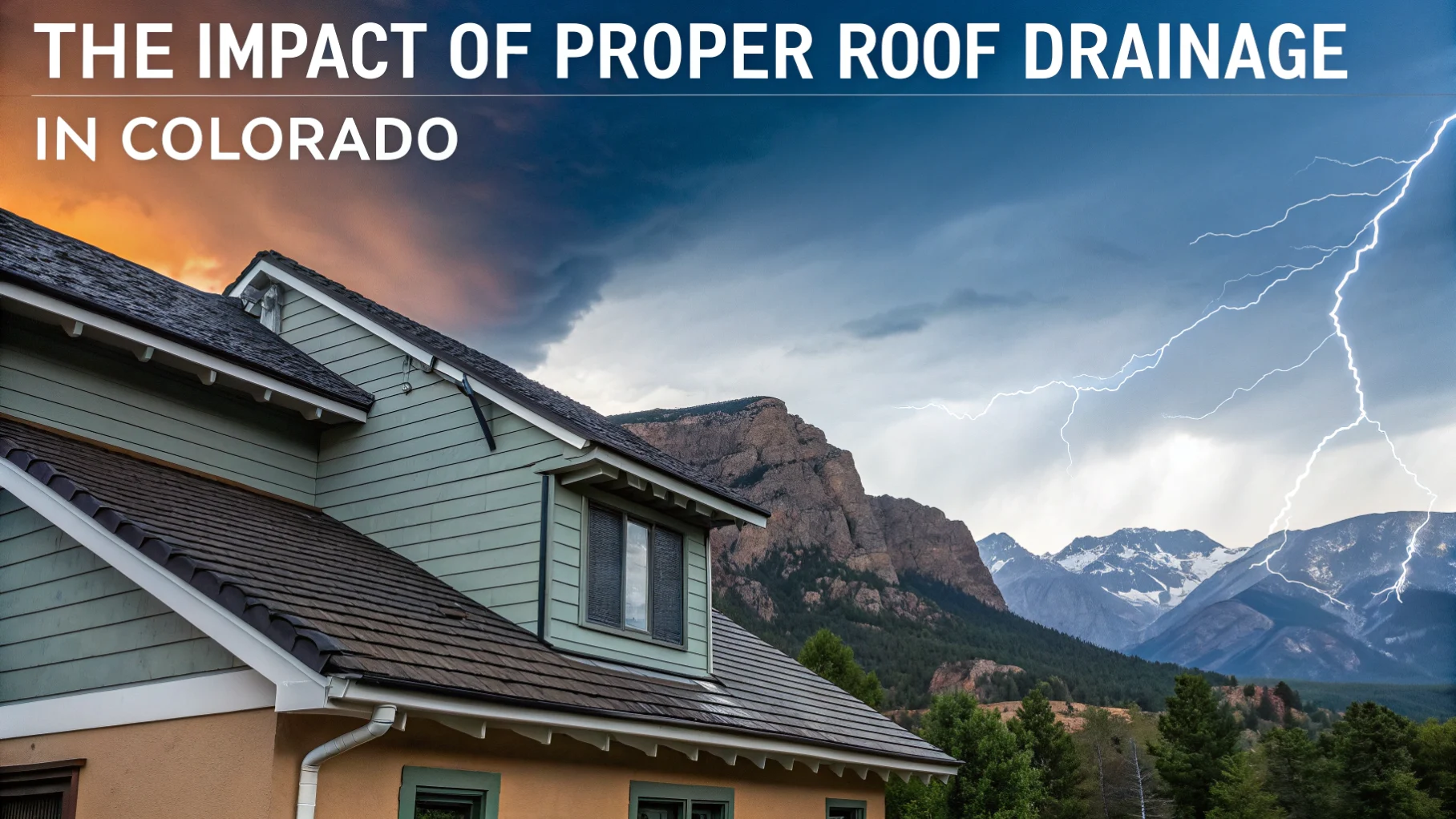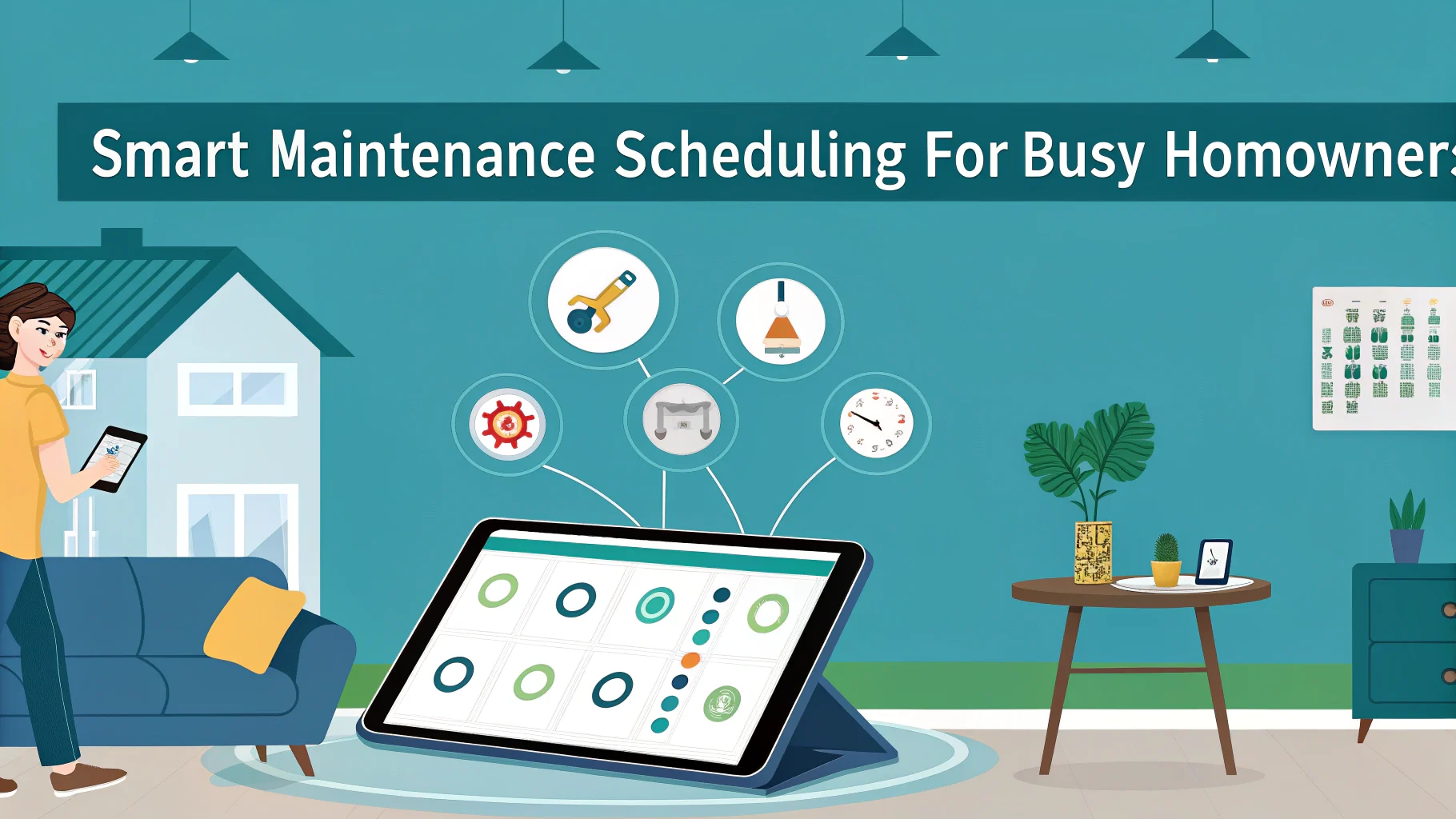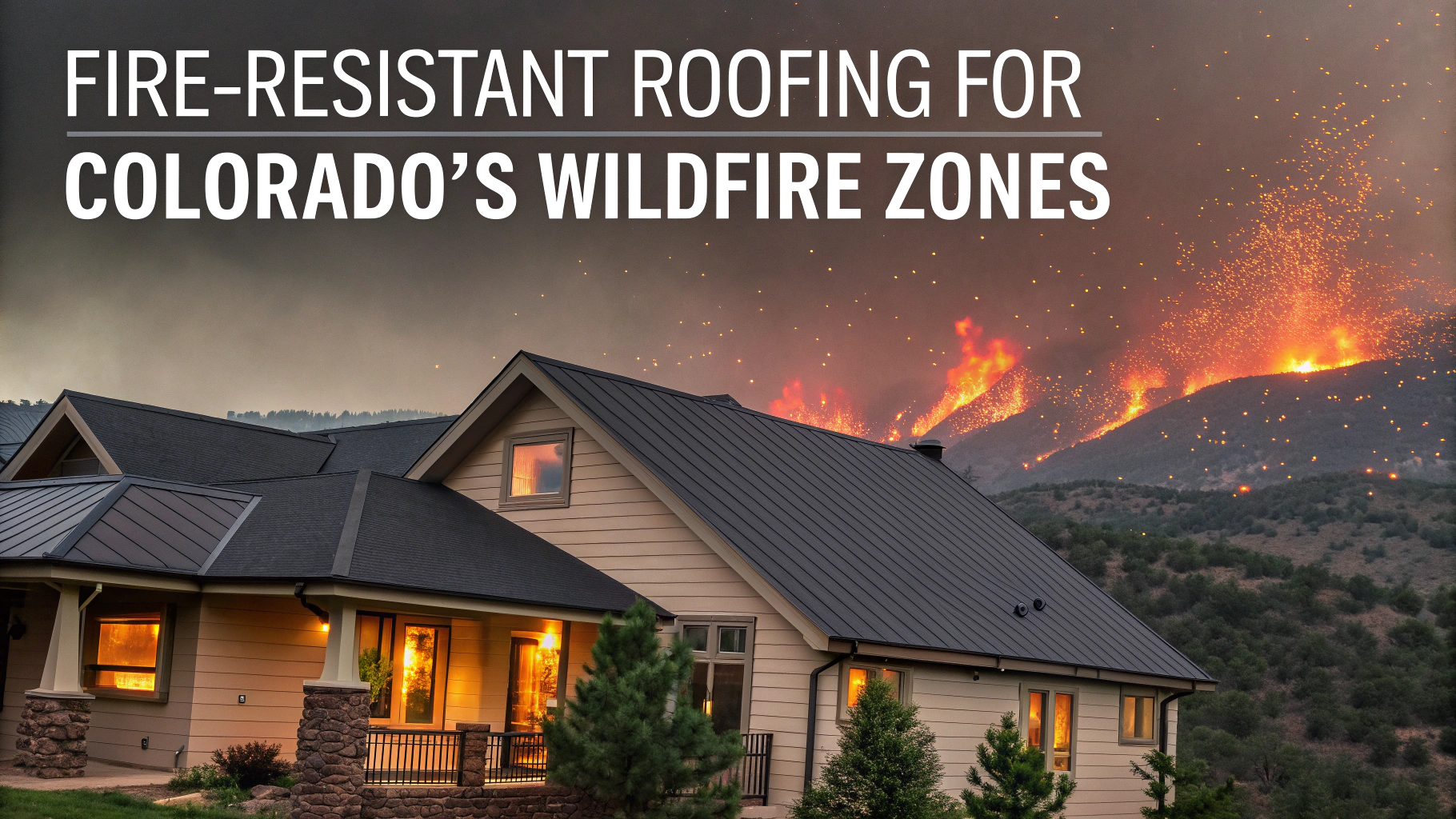Finding a reliable roofing contractor in Colorado requires careful consideration due to the state’s unique weather challenges and building requirements.
The right contractor can protect your investment and ensure your roof withstands everything from heavy snow to intense UV exposure at high altitudes.
This quick guide will help you identify trustworthy roofing professionals in Colorado while avoiding common pitfalls and scams.
Essential Qualifications to Look For
- Valid Colorado state roofing license
- Current liability insurance and workers’ compensation
- Local business address and phone number
- Minimum 5 years of experience in Colorado
- Member of Colorado Roofing Association (CRA)
Red Flags to Watch Out For
- Door-to-door solicitation after storms
- Pressure to sign contracts immediately
- Unusually low bids compared to other quotes
- Requests for full payment upfront
- No physical business location in Colorado
Verification Steps
- Check their license status on DORA’s website
- Review BBB ratings and customer complaints
- Contact the Colorado Roofing Association for member verification
- Ask for recent local references and follow up with them
- Verify insurance certificates directly with the carrier
Required Documentation
- Written estimate with detailed scope of work
- Copy of contractor’s license
- Proof of insurance
- Written warranty information
- Building permit details
Local Building Requirements
Colorado contractors must comply with specific regional building codes and altitude considerations.
| Region | Special Requirements |
|---|---|
| Denver Metro | Class 4 impact-resistant shingles |
| Mountain Areas | Enhanced snow load capacity |
| Front Range | Wind resistance ratings |
Questions to Ask Potential Contractors
- How long have you worked in Colorado?
- What specific experience do you have with my type of roof?
- Can you provide local references from the past year?
- What warranties do you offer on materials and labor?
- How do you handle unexpected issues or additional costs?
Getting it Right: Your Next Steps
Contact at least three licensed contractors for detailed estimates before making your decision.
Document all interactions and keep copies of all paperwork, including photos before and after the project.
For additional guidance, contact the Colorado Roofing Association at (303) 484-0549 or visit their website at coloradoroofing.org.
Payment and Contract Terms
- Never pay full amount upfront
- Standard deposit should be 10-30%
- Get payment schedule in writing
- Ensure final payment is due only after inspection
- Include material cost provisions in contract
Seasonal Considerations
- Spring: Best for maintenance and inspections
- Summer: Peak season, longer wait times
- Fall: Ideal for installations before winter
- Winter: Emergency repairs only
Insurance Claim Process
Working with Insurance Adjusters
- Document all storm damage with photos
- Schedule adjuster visit promptly
- Have contractor present during inspection
- Get detailed scope of damage in writing
- Understand deductible responsibilities
Protecting Your Investment
Schedule annual inspections to maintain warranty validity and catch issues early. Keep detailed records of all maintenance and repairs.
Join local homeowner networks to share contractor experiences and stay informed about regional roofing challenges.
Maintain contact information for your chosen contractor for future service needs and establish a long-term professional relationship for your roofing maintenance.
Securing Your Roofing Success
Taking time to properly vet and select a qualified Colorado roofing contractor will protect both your property and investment. Remember to verify all credentials, get everything in writing, and never rush the decision-making process.
Stay engaged throughout the project and maintain open communication with your chosen contractor. Your diligence in selection and oversight will result in a durable, properly installed roof that meets Colorado’s unique environmental demands.
FAQs
- What licenses and permits should a legitimate Colorado roofing contractor have?
A Colorado roofing contractor must have a state contractor’s license and local business permits specific to the city they’re working in (e.g., Denver, Colorado Springs, or Boulder). They should also carry proper insurance, including worker’s compensation and general liability insurance. - How can I verify a roofing contractor’s insurance in Colorado?
Request a copy of their insurance certificate and contact the insurance provider directly to verify coverage. Valid insurance should include both liability coverage (minimum $1,000,000) and worker’s compensation insurance. - What is the Colorado Roofing Association (CRA), and why is it important?
The CRA is a professional organization that promotes ethical practices in the roofing industry. Members must maintain certain standards of quality and professionalism, making CRA membership a good indicator of reliability. - How should I handle contractor requests for large upfront payments?
Legitimate Colorado contractors typically request no more than 10-30% as a down payment. Be wary of contractors demanding more than 50% upfront, as Colorado law prohibits contractors from charging excessive advance payments. - What should be included in a proper roofing contract in Colorado?
The contract should include scope of work, materials to be used, start and completion dates, payment terms, warranty information, and the contractor’s license number. It must also include the homeowner’s right to cancel within 72 hours. - How can I protect myself from storm chaser contractors in Colorado?
Verify local business addresses, check how long they’ve been operating in Colorado, and avoid contractors who show up unsolicited after storms. Legitimate contractors should have an established local presence. - What warranties should a reliable Colorado roofing contractor offer?
A reliable contractor should offer both manufacturer warranties on materials (typically 20-30 years) and workmanship warranties (typically 2-10 years). Get all warranty terms in writing. - How do I check a contractor’s reputation with Colorado consumer protection agencies?
Check reviews with the Better Business Bureau of Colorado, verify complaints with the Colorado Attorney General’s Office, and research their standing with the Colorado Department of Regulatory Agencies (DORA). - What are Colorado’s specific requirements for roof repairs after hail damage?
Contractors must provide a detailed scope of work, cooperate with insurance adjusters, and follow local building codes. They should also be familiar with Colorado’s specific requirements for impact-resistant roofing materials. - How long should a reputable Colorado roofing company have been in business?
Look for companies with at least 5 years of local experience in Colorado. This ensures they understand local weather patterns, building codes, and have an established track record in the community.
